On the other hand, "must" is used to convey a stronger meaning than simply "have to", it's more forceful "You must be here by 100pm" In this sentence, the use of "must" gives more import to the need to be here by 100pm However, it can also be used to show that something is logically the result of something elseFill in the blanks with affirmative or negative forms of must or have to & has to 1 It's raining outside Tim take his umbrella 2 I can give you my car, so you buy a new one 3 They be in a hurry, because they have got more than enough timeIn this lesson, you can learn about the modal verbs must, have to and shouldDo you know the difference between 'must', 'have to' and 'should'?

Must Have And Nice To Have Criteria Download Table
Have to must need to exercise
Have to must need to exercise-Mustn't _____I stay and help you or you can do it alone?Have to "Have to" is used to show that a person is obliged to do something, usually by an outside force, have to can also be used to give your opinion You have



1
Look, there's going to Have to Have to用來表達必要,意思是「必須」,你會因為沒有選擇而必須去做某件事情,或是表示較客觀性的義務(與must相比)。 1 Have to帶有緊急性,毫無選擇 → I have to go to the toilet 我必須去趟廁所。 (再不去就會尿出來了) 2 Have to帶著客觀的事實,但MUST HAVE TO NEED worksheet Grammar worksheets > Modal verbs > have to > MUST HAVE TO NEED MUST HAVE TO NEED three quick exercises to practise the use of must / have to and need Hope it´s useful!
Must or have to followed by an infinitive are used to express obligation Hence, it doesn't make sense to use them together See here for a detailed explanation From the site We often use must for more personal opinions about what it is necessary to do, and have to for what somebody in authority has said it is necessary to do I must remember to get a present for Daisy1) In the affirmative HAVE TO has a meaning similar to MUST I have to go to the school 2) In the negative HAVE TO has a different meaning "you don't need to dot that" It's Sunday!Have to, however, is different, forming interrogatives and negatives using do and having a 'normal' past form In terms of teaching the modal verbs, the list of verbs in the first question suggests that the distinction between ought to and should and must and have to respectively is the key point, which also suggests that the learners in
We use have to / must / should infinitive to talk about obligation, things that are necessary to do, or to give advice about things that are a good idea to do Mus t and have to are both used for obligation and are often quite similar They are both followed by the infinitive I must go now / I have to go nowPAGE 94 • MODAL VERBS 43 Must/have to, mustn't/don't have to 1 We use must when the speaker thinks it is necessary or important to do an action You must go (= It is important that you go) We make negatives, questions and short answers like this You mustn't go Must you go? Must Must is used to indicate a strong obligation It is not a recommendation It is extremely strong and can appear impolite or bossy if used in the wrong situation




Grammar Rules Simplified Have To Must Mustn T Don T Have To Needn T Have Didn T Need To English Esl Worksheets For Distance Learning And Physical Classrooms




Must Have To Need To Ought To Should Practice English Esl Worksheets For Distance Learning And Physical Classrooms
Have a nice summer! Have need to definition to be compelled or required to;2 You're such a fun at parties, he invited you 3 You get offended, he may have forgotten to ring you up 4 You think there's something wrong with you It was Jerry's mistake 5 If you don't go to his party, you buy him a present That is an advantage!



Obligation And Necessity Modal Verbs




Must English Grammar English Grammar English Verbs English Language Learning
Must / Have to Must / Have to "Must" y "Have to" expresan una obligación A veces se pueden utilizar indistintamente (especialmente con la primera persona donde prácticamente tienen el mismo sentido), no obstante existen ciertas diferenciasMust/mustn't, have to/don't have to – meaning Download fullsize image from must or have to?(indicates that the speaker is certain that the subject will have executed the predicate) or must can be to make musty while need is to be necessary (to someone) As nouns the difference between must and need is that must is something that is mandatory or required or must can be the property of



Http Engleskidolores Weebly Com Uploads 3 8 3 2 Modal Verbs Grammarway Pdf




Teaching Must And Have To Necessity Modals Off2class
Los verbos modales must, have to, should, should have (Modals must, have to, should, should have) Should Se usa "should" para dar o pedir consejo o para dar opiniones en el presente "I have a terrible stomachache" "You should go to the doctor's" "I haven't heard from my father"Regarding the meaning, sometimes there is little differenceI need to go to the store I have to go to the store I must go to the storeDo these sentences mean the same thing?
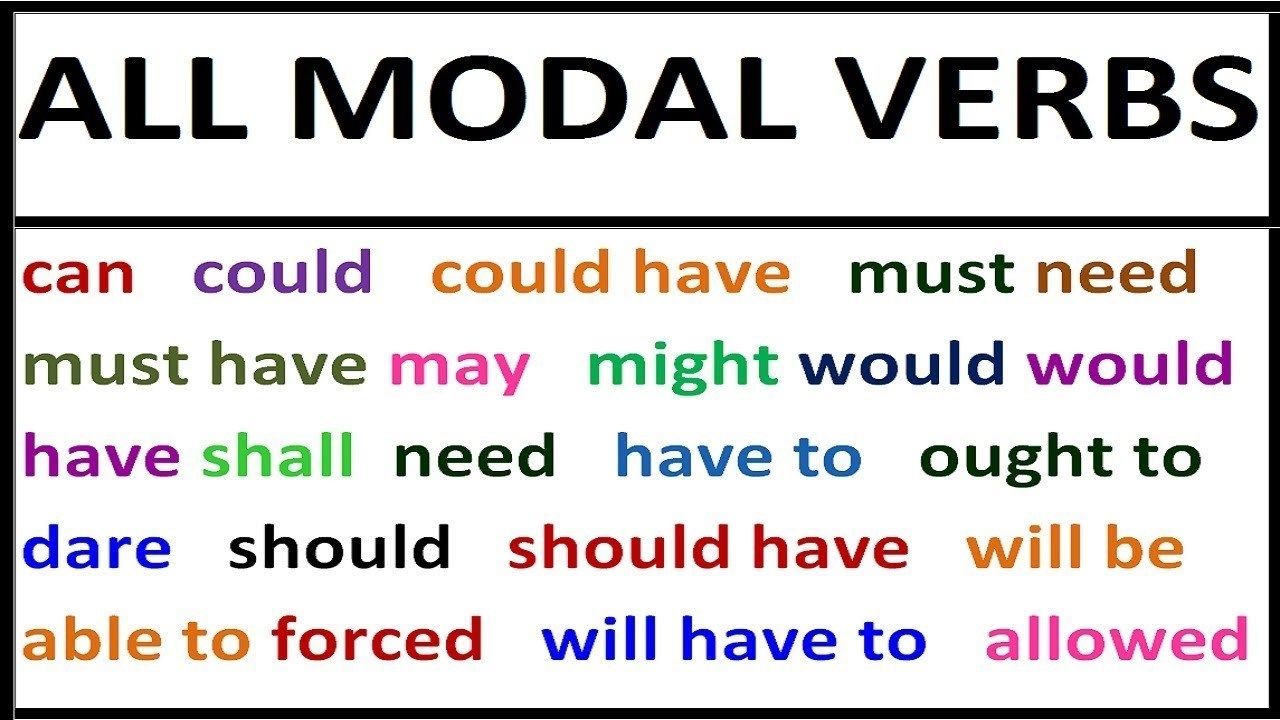



Modal Verbs Slide Set



Must Have Vs Nice To Have Requirements
Need to vs have to vs must can be used as synonyms Sometimes That's the good news Generally, they all mean that you're talking about a responsibility, an obligation, or something that is important to do This is where they are similar In positive sentencesThe structure is must (not) verb, and in this case the verb is a perfect passive (have been) since it refers to an alreadycompleted action of 'being found guilty' To know which of these meanings is intended, we would need to look at the rest of the text where this sentence is usedMust vs have to Both Must and have to express obligation or necessity, but there are some small differences • Must expresses the speaker's feelings, whereas have to expresses, above all, an impersonal idea You must come You are obliged to come (I require that you come) You have to come You are obliged to come




The Ultimate Guide To Eu Vat For Digital Taxes




English Modal Verbs Of Necessity Need Verb Without To Is Used In Negative And Interrogative English Grammar Exercises English Grammar Learn English Grammar
Have To vs Must There is a slight difference between have to and must though they both seem to convey the same meaning In fact, it can be said that must and have to are two different words that give different senses and not the same meaning Must is known as a modal verb in the English language while have to is a verb Have to is a variationHave to、need to 和 must 三者比較之下,must 的語氣最為強烈,其次是 have to,再來是 need to。 must 和 have to 的意思比較相近,一樣用來強調義務、必要性,但 must 本身的主觀性很強,而 have to 與 need to 相較下更強調責任與義務。 must 的用法 1 must 表示「義務、必要性 Plus, it's a great wagon to have beyond the beach, whether that may be a summertime camping trip or an outdoor concert Get the Aleko Multipurpose Folding Utility Wagon at Overstock for $159
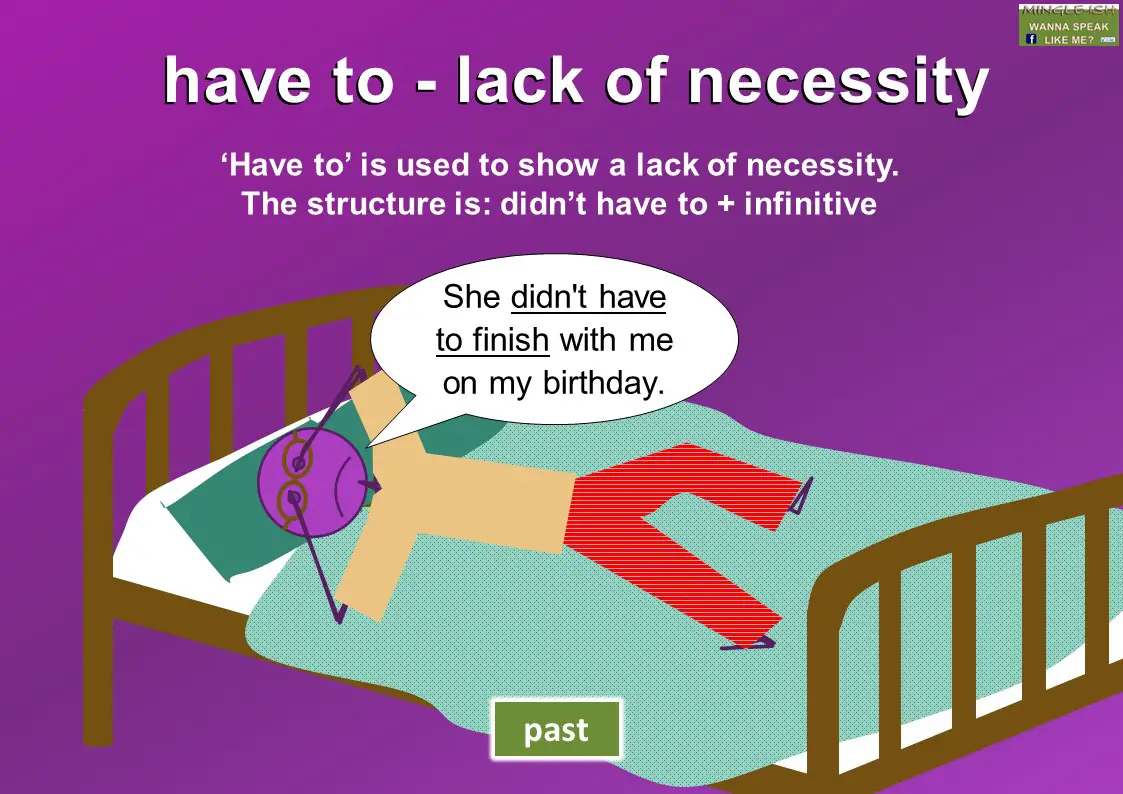



Modals Have To Must Need To Mingle Ish




127shares Learn The Differences Between Must Vs Have To And Mustn T Vs Don T Doesn T Have To You Can J Learn English Learn English For Free English Writing
We use must to express a stronger point of view "We need to" "We have to" The modal must also expresses opinion, one person's point of view MUST PLAIN FORM VERB We must protect our environment, or our resources will disappear Engineers must redesign engines so that they are more fuelefficient Customers must pay for paper bags if they do not bringThe verbs need, have to, and must are all synonyms of one another and are used to mean that something is necessary or required But they each have slightly different connotations and uses Need, when followed by to and a verb, is the narrowest of the three verbs It is most often used to say that an action should be doneYou_____be very rich to go skiing nowadays ?




M O D A L S K I P L E R Should Must Have To Need Mustn T Needn T May Might Ppt Download
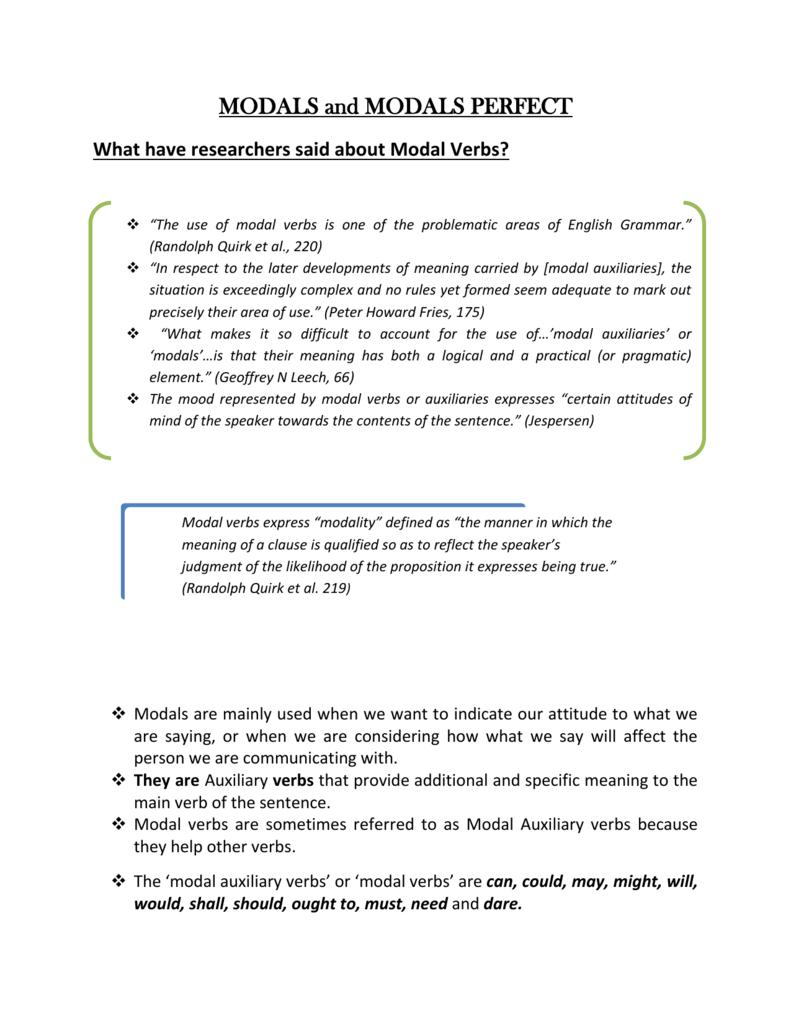



Modals Simplified
As verbs the difference between must and need is that must is to do with certainty; While must is a modal verb, have to is a semimodal verb, in the sense that as a modal verb it is used along with the verb to express necessity, but acts like a normal verb in its formulation Both must and have to talks about obligation, but must highlight a personal obligation, and have to outlines an external obligation Need To vs Have To • Both Have to and Need to express urgency and used when something has to be done • 'Need to' indicates a need and reflects the fact there is some benefit if the task is completed or done • Have to indicates an obligation such as a requirement by law • Have to means that it is obligatory on your part, whereas




Should Must English Esl Worksheets For Distance Learning And Physical Classrooms




Modals Have To Must Need To Mingle Ish
~ Yes, I must 2 We use have to to talk about an action that is necessary because of rules or laws,567 Mustn't vs Don't Have to Exercises 1 / 2 / 3 10 Must vs Have to / Has to Exercises 1 / 2 / 3 11 Must / Mustn't / Needn't / Have to 1213 Modals With Passive Voice 1 / 2 14 Mustn't vs Needn't vs Can't Similar Exercises MODALS V3 Practice Test Ought to (Should) Have / Must Have Needn't Have / Didn't Have To Should Have Done DragHave to, must Have to is NOT an auxiliary verb (it uses the verb have as a main verb) We include have to here for convenience Must is a modal auxiliary verb




Verbos Modales Must Y Need Usos Y Diferencias Con Otras Formas Verbales
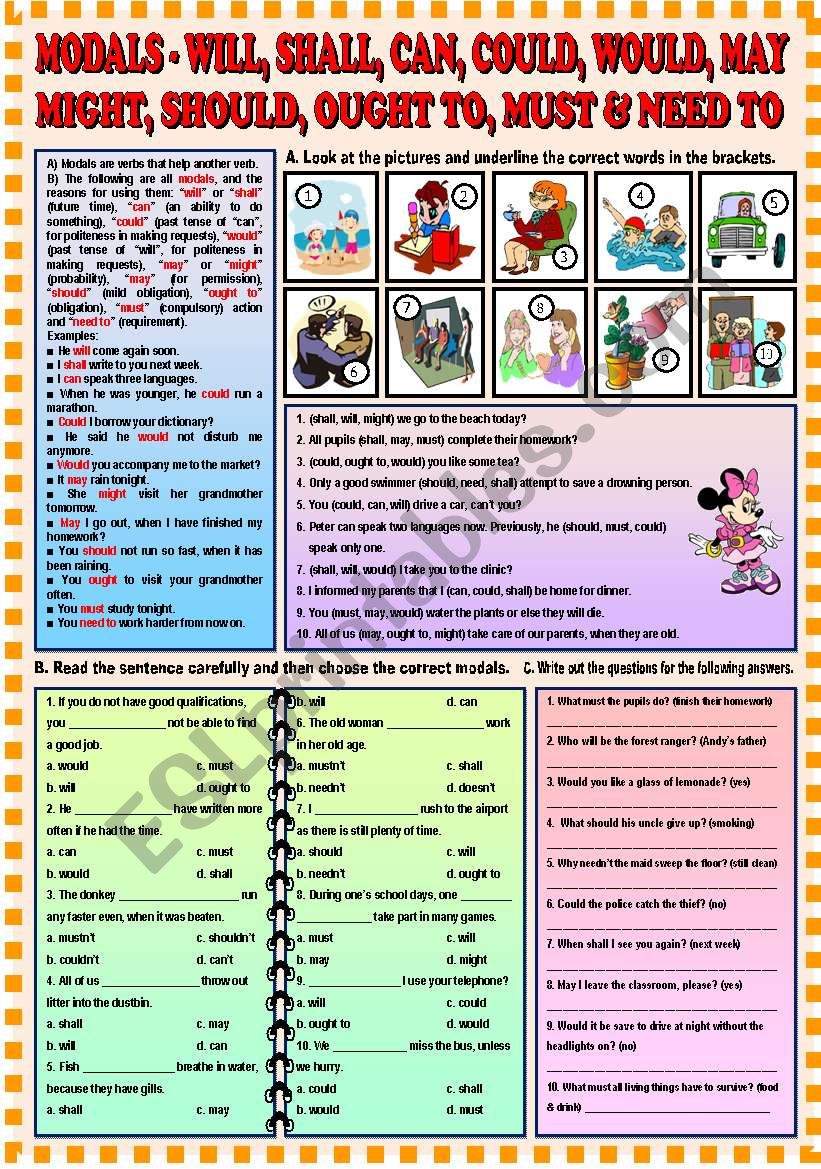



Modals Will Shall Can Could Would May Might Should Ought To Must Need To Key Esl Worksheet By Ayrin
However, we say "need to" when we want to talk about things that are necessary to do in order to achieve a certain goal For example I have to be at work by 900 am every morning I have to help my friend move tomorrow, so I can't have lunch with you You have to turn off the lights if you're the last person to leave the office It refers to a requirement for something A medical need, for example, is something you are required to do in order to maintain your health The phrase 'need to' explains that a certain action must be done in order for something else to happen This brings us to the difference between the twoNeed to is for when you have a goal And must is for when you have a strong feeling Also, don't worry too much about the difference between have to and need to because most English speakers will not see a difference between these in daily conversation But now, let's look at what happens when we add the word "not"




Test English Prepare For Your English Exam
:max_bytes(150000):strip_icc()/sign-warning-people-of-fines-for-feeding-wildlife-in-a-park-at-arakoon-in-new-south-wales--australia-847527992-5bc9d8c246e0fb0026d028e0.jpg)



How To Use Must Have To And Need To In English
I can't go out now I_____do my homework, my mummy tells me ? Discuss the differences between 'have to' and 'must' in the positive form Make sure to point out that 'have to' is used for daily routines while 'must' is used for strong personal obligation Discuss the differences between 'don't have to' and 'mustn't'Have to, must Quiz You can do this grammar quiz online or print it on paper It tests what you learned on the have to, must page 1 Yesterday I _____ finish my geography project must mustn't had to a) must b) mustn't c) had to 2 She will _____ wait in line like everyone else must




Pin On Modals In English



Modal Verbs Have Must Need And Ought Get Great English
Should / Must / Have to Should Se utiliza para dar consejos Se indica que algo es bueno y por lo tanto se debería hacer Es una recomendación, no una obligación Tiene menos fuerza impositiva que "must" y que "have to" If you feel bad you should go toBe careful with the negative of Must and Have to There is a BIG difference in meaning between Mustn't and Don't have to Mustn't means something is prohibited or it is not allowed It is important that you do NOT do something Don't have to means there is NO obligation to do something You are not required to do something, especiallyMust Meaning, pronunciation, translations and examples




Modal Verbs Must Have To Need Should Worksheet
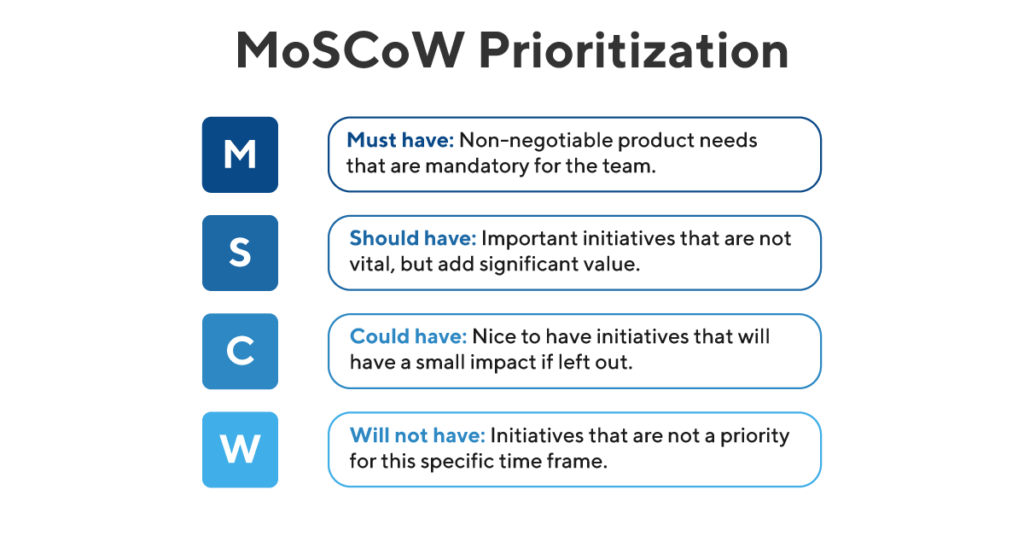



What Is Moscow Prioritization Overview Of The Moscow Method
Must only has a present form, so for all other verb forms (past, future, perfect forms, infinitive, etc) we need to use have to You will have to come with me We had to drive very fast We normally use have to for questions Questions with must are not common Do we have to sit here?We_____do so many things around the house, that we couldn't call you ?Can we always use them in the same w




Human Rights Defenders We Need Them More Than Ever States Worldwide Must Protect Human Rights Defenders In The Current Covid 19 Crisis World Reliefweb
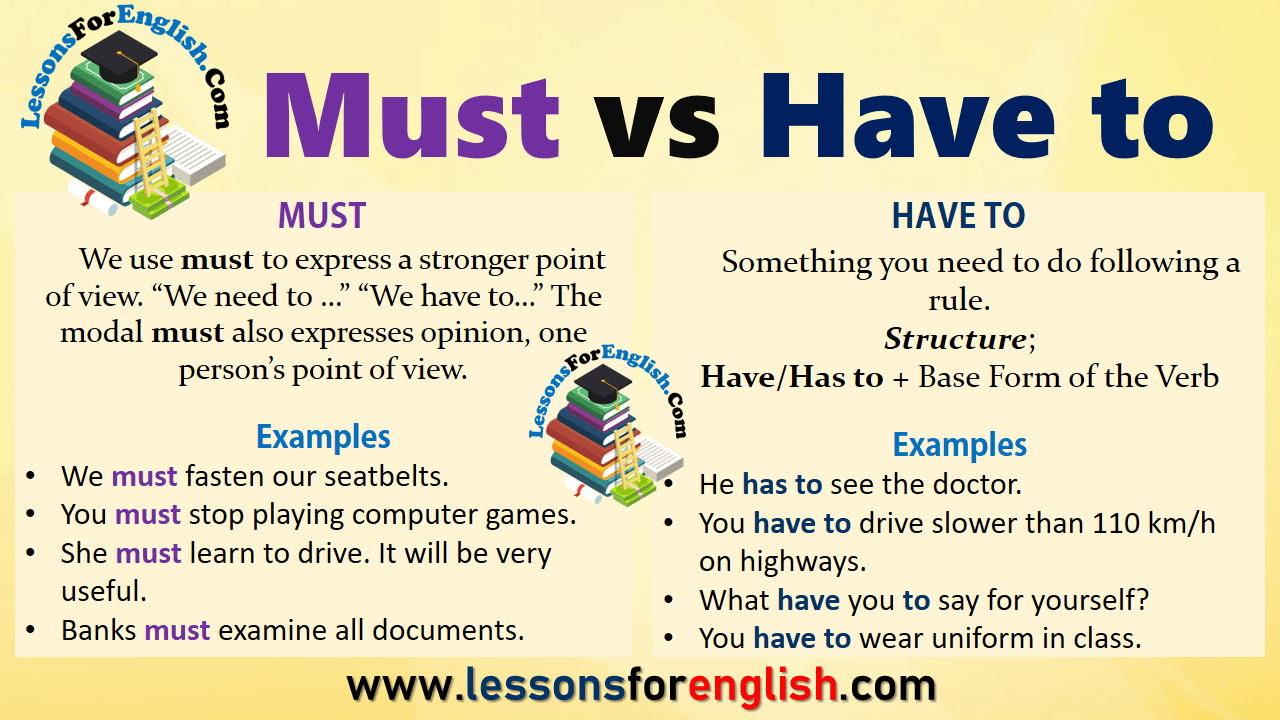



Must Vs Have To In English Vocabulary Home
Must only has a present form, so for all other verb forms (past, future, perfect forms, infinitive, etc) we need to use have to You will have to come with me We had to drive very fast We normally use have to for questionsLevel intermediate Age 1417Diferencias entre "must", "have to" y "need to" must y have to Podemos distinguir dos matices entre must y have to Normalmente usamos must cuando la obligación viene de otra persona




Modal Verbs Must Need To Should Have To Easiest English Learning




Should Must And Have To English Esl Worksheets For Distance Learning And Physical Classrooms
Need English Grammar Today a reference to written and spoken English grammar and usage Cambridge DictionaryHave to contrasts with must in that it usually expresses an obligation imposed by someone other than the speaker Had to is the past tense of have to and may be used in cases where a past equivalent of must is required Need to is used where there is not such a strong obligation, but where completing the action will satisfy a particularHave to / has to Must not do not have to Must / can quiz Must / mustn't exercises 1 Must / mustn't exercises 2 I have to walk the dog Permission obligation prohibition Don't have to / doesn't have to Modals of necessity must / have to




Need Must And Have To For Learn English Today Com Facebook




Modal Verbs Obligation Must Should Have To Need To Worksheet




Modals Can May Must Shall Will Ought To Need Be To Have To Would Should Used To Lessons For English




Must Or Have To Worksheets And Online Exercises




Must Et Have To Quelles Differences



1
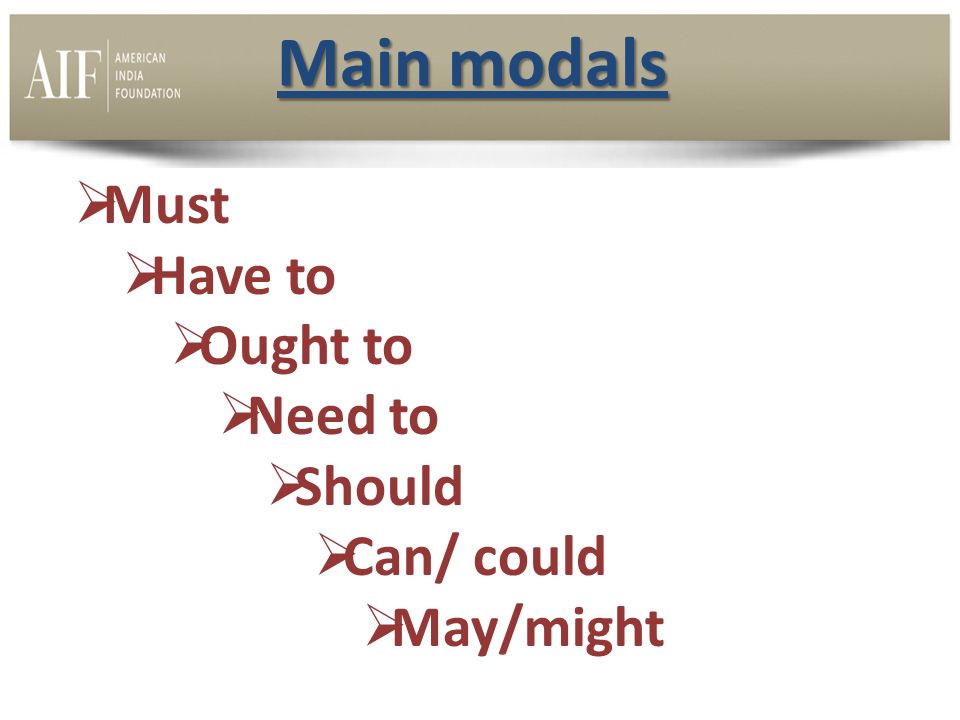



Previous Knowledge Testing Questions Modals Introduction Ppt Video Online Download




Modals In The Past Can T Have Verb Linguistic Morphology




Must Have And Nice To Have Criteria Download Table




Modals Can Could May Might Should Ought To Must Have To Need To Abilitiy Past Ability Probability Advisibility Obligation Necessity Cankaya University Ppt Download




ثمرات اللغة Language Thamarat Have To Don T Need To Needn T Must Mustn T شرح قواعد 1 ثانوي Traveller 1 Grammar
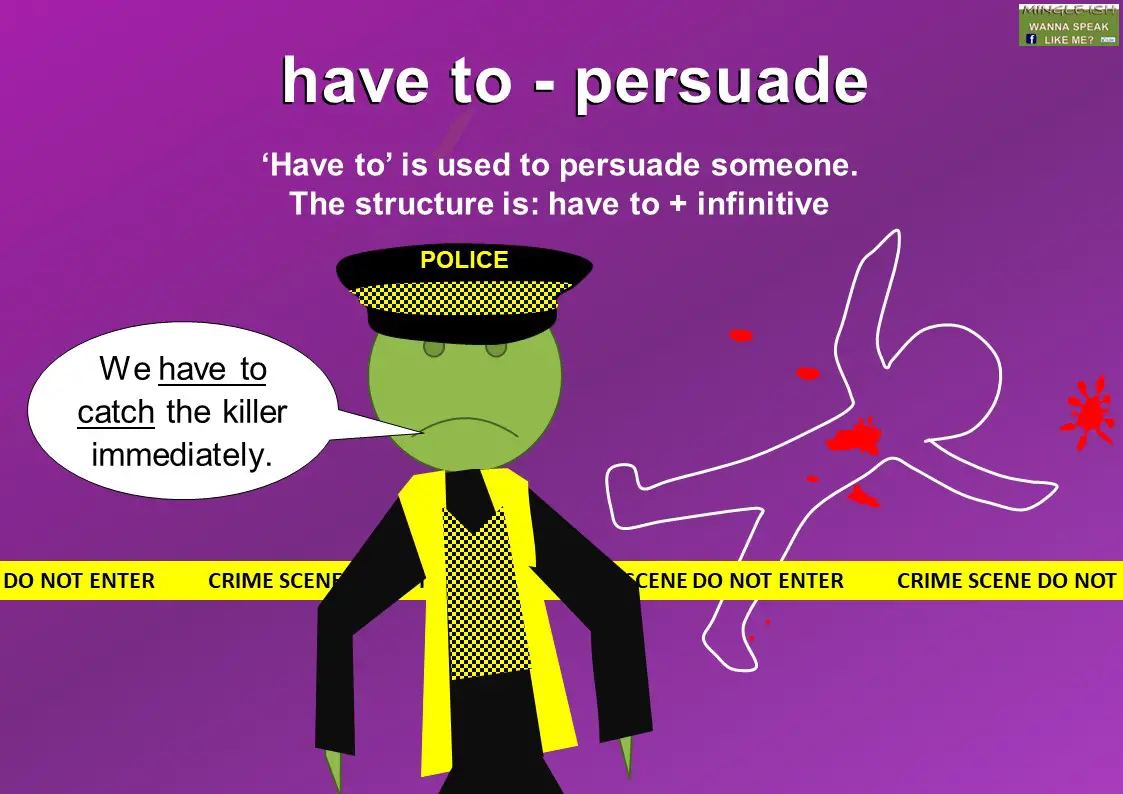



Modals Have To Must Need To Mingle Ish



1
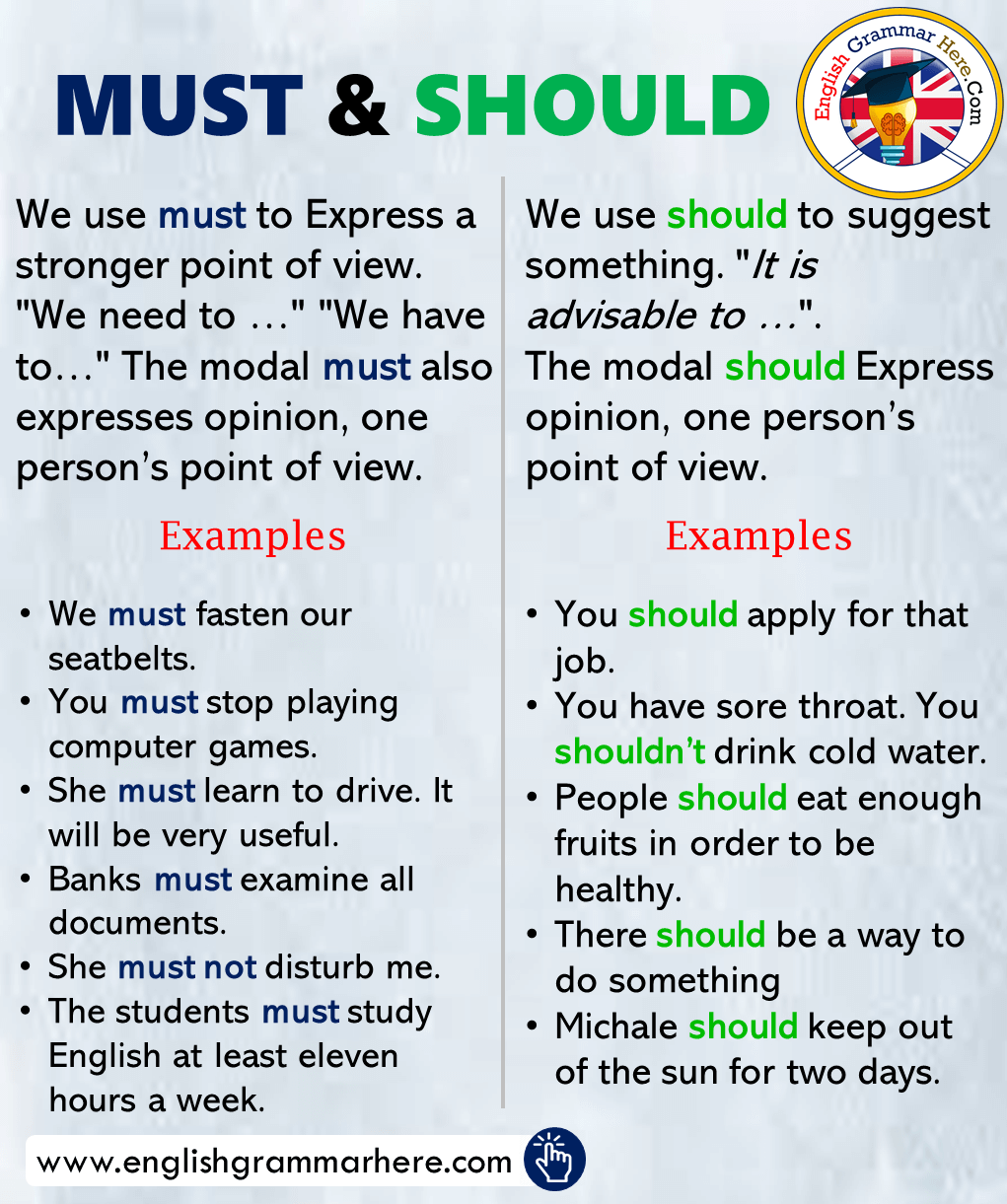



Using Must And Should Example Sentences English Grammar Here
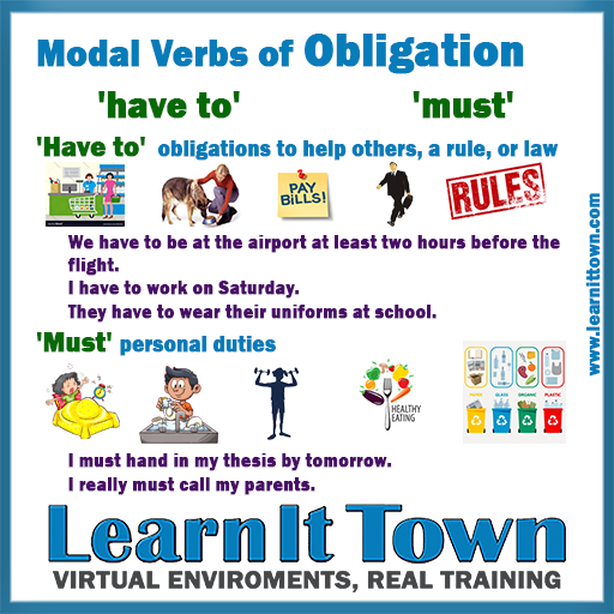



Modal Verbs Course




The Difference Between Must Have To Shall Need And May
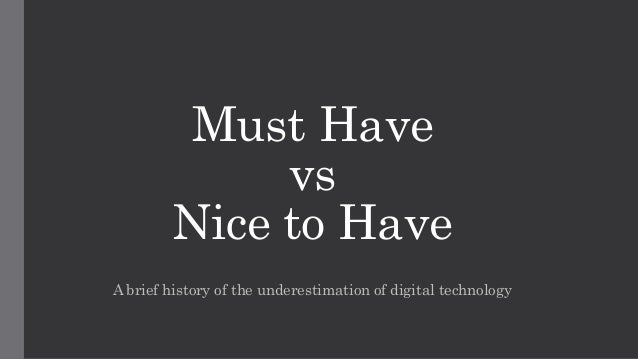



Document Management Nice To Have Vs Need To Have




Test English Prepare For Your English Exam
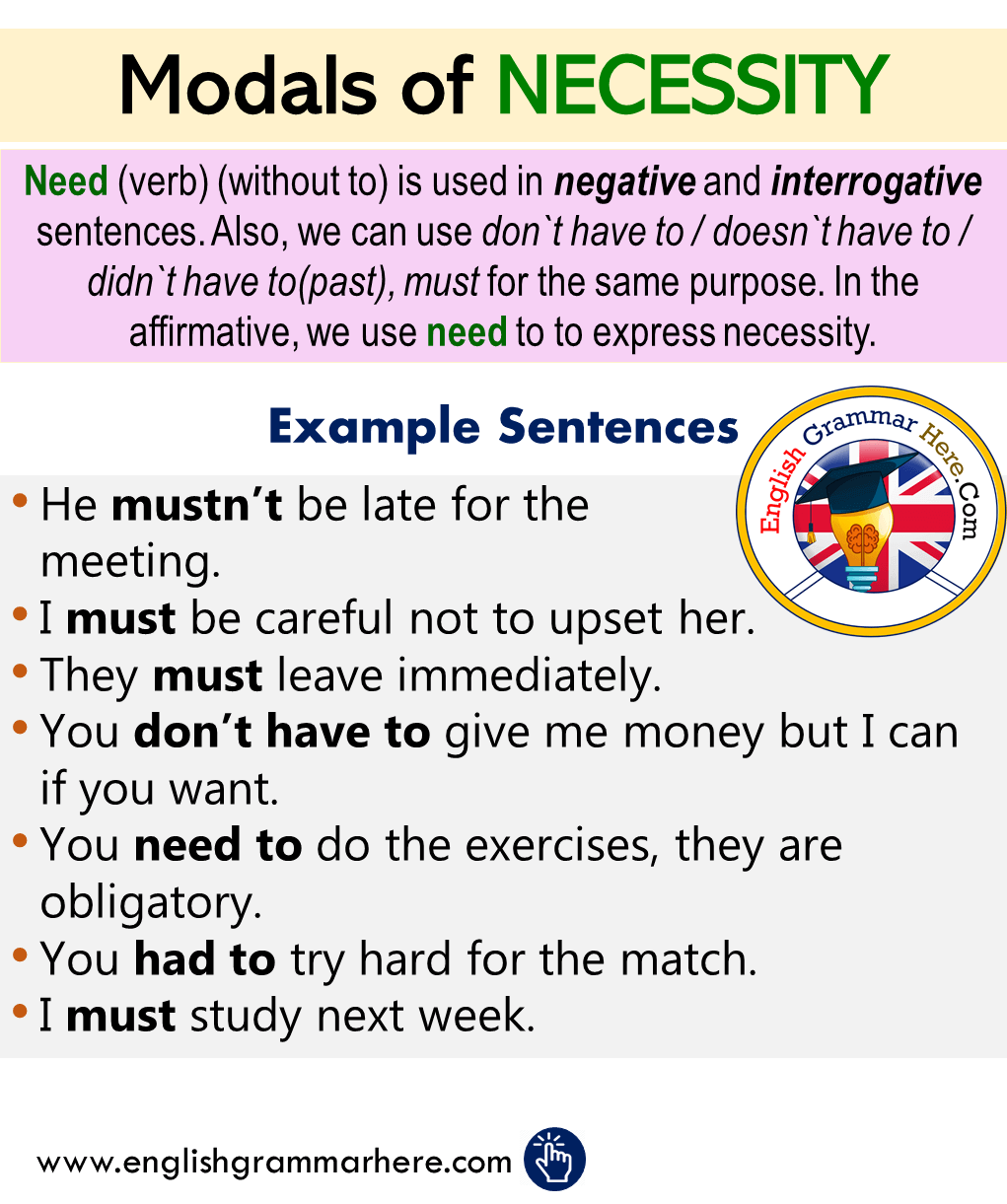



English Modals Of Necessity Definitions And Examples English Grammar Here
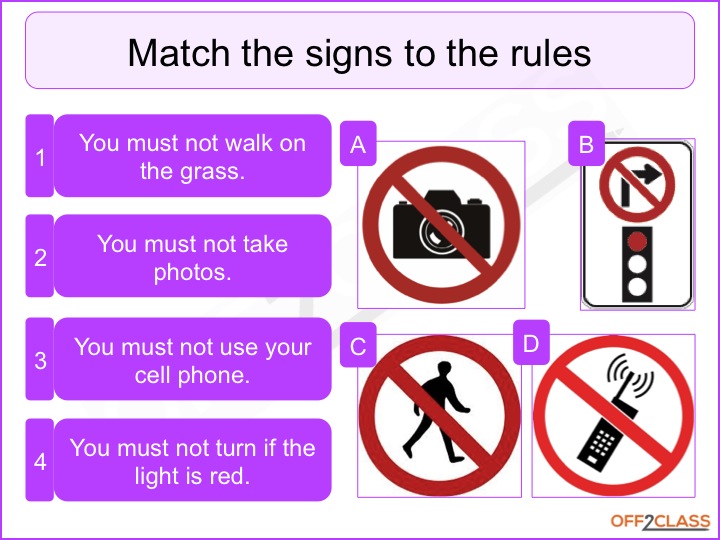



Teaching Must And Have To Necessity Modals Off2class




Must Have To Need To Ought To Should Practice English Esl Worksheets For Distance Learning And Physical Classrooms




Pin Na Doske English



7a Advanced English Grammar Differences Between Must Have To Ought To Should Need Needn T Have




Modal Verbs Rosa Miralles Y Bea Calatayud
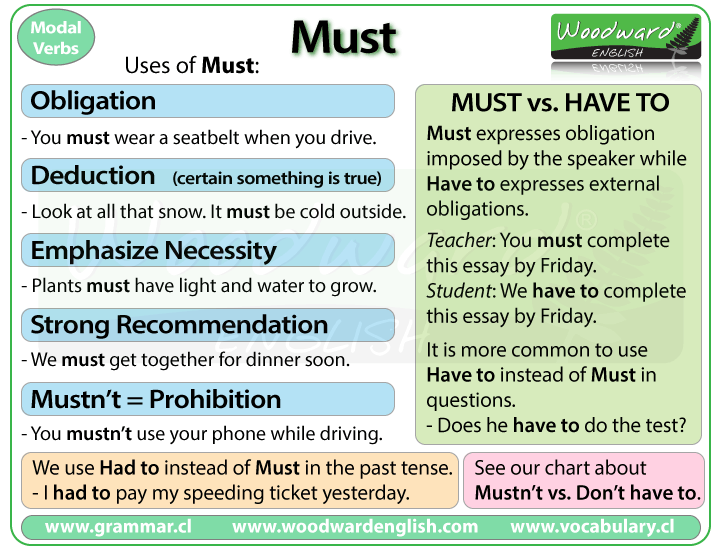



Must English Grammar
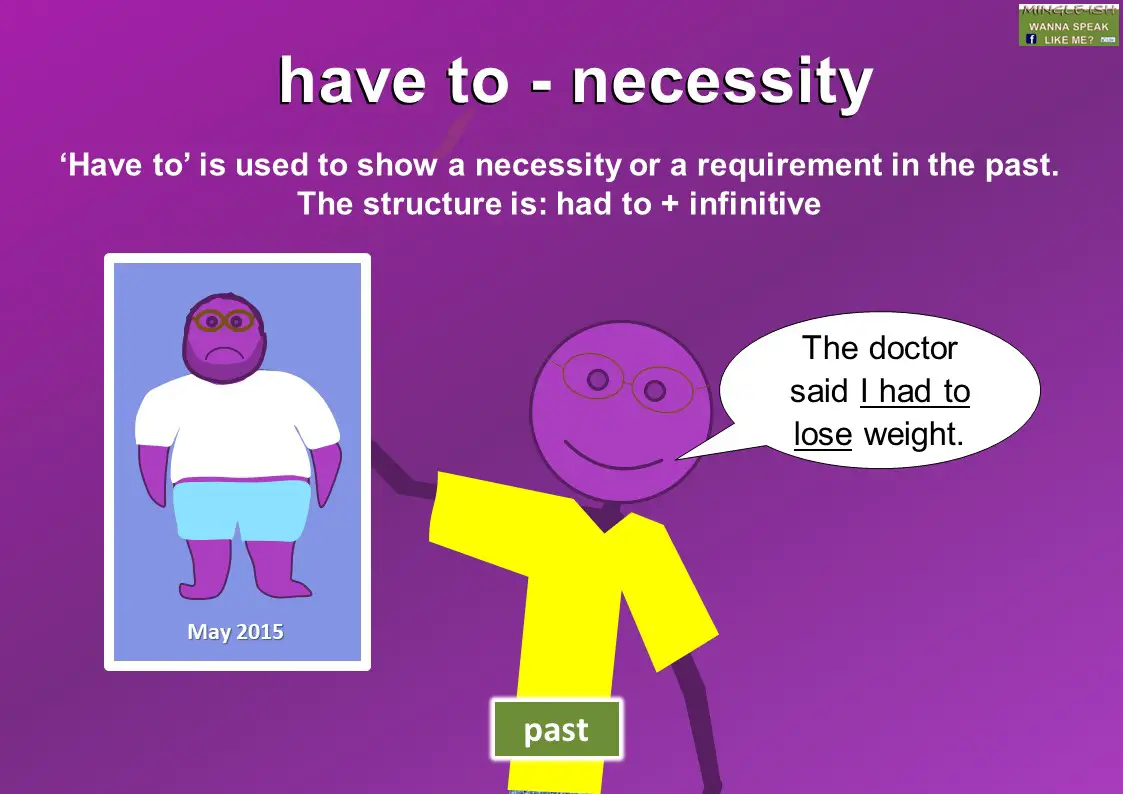



Modals Have To Must Need To Mingle Ish



1
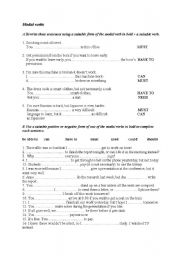



Can Could Be Able To Must Have To Need Should Esl Worksheet By Lacacg
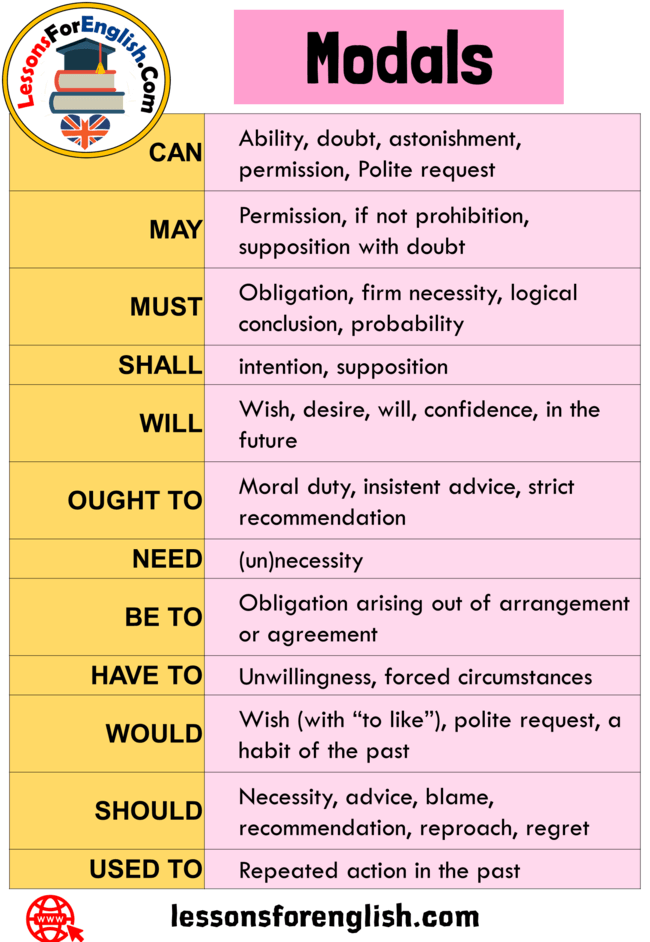



Modals Can May Must Shall Will Ought To Need Be To Have To Would Should Used To Lessons For English




Must Have And Nice To Have Criteria Download Table




Modals Of Necessity Definition And Example Sentences Need Verb Without To Is Used In Negative And Interrogative Senten Sentences Definitions English Study




Must Mustn T Have To Don T Have To Ppt Video Online Download




Have To Need To Must Should Worksheet




M O D A L S K I P L E R Should Must Have To Need Mustn T Needn T May Might Ppt Download




Teaching Must And Have To Necessity Modals Off2class
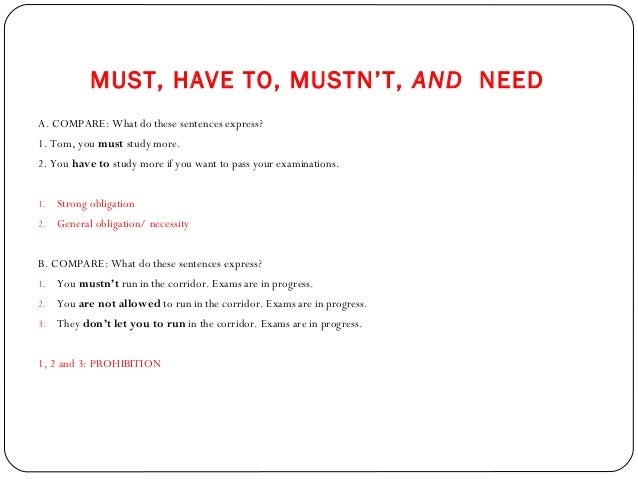



Fce Use Of English Expressing Obligation




Have To Don T Have To Needn T Must Or Mustn T Test A1 Level Exercises




Modal Verbs Prezentaciya Onlajn



Using Must And Have To In English English Study Here
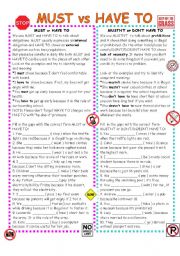



Modal Verbs Must Have To Esl Worksheet By Ania Z
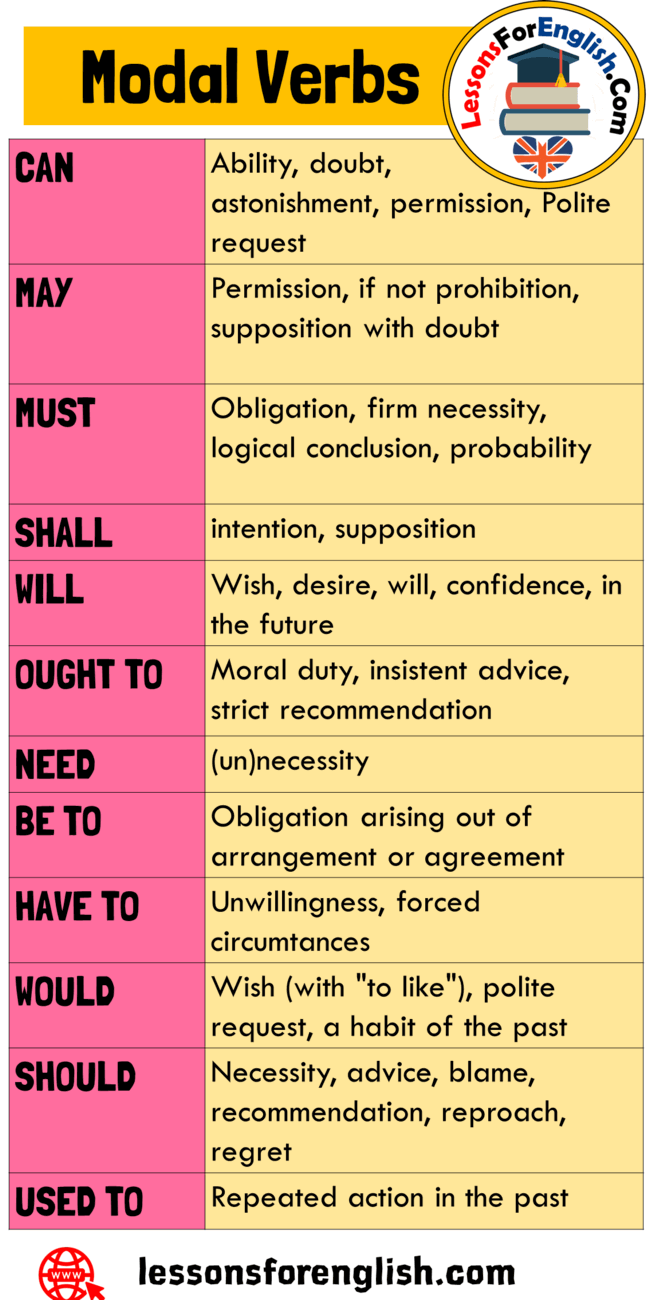



Modal Verbs Can May Shall Need Ought To Have To Would Should Used To Definition And Examples Lessons For English




Lesson Idea Must Mustn T Don T Have To Elt Planning
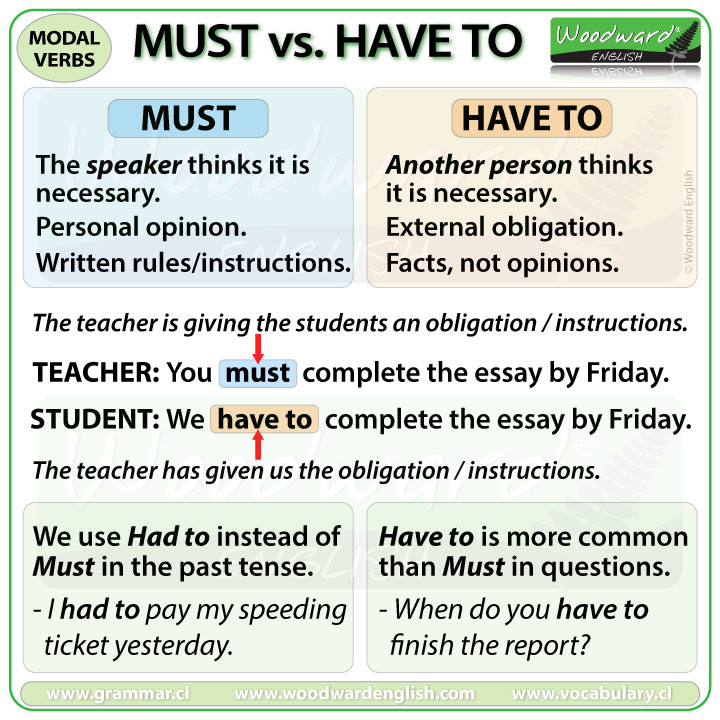



Must Vs Have To Woodward English




Modal Verbs Can Can T Must Mustn T Have To Don T Have To Ppt Download
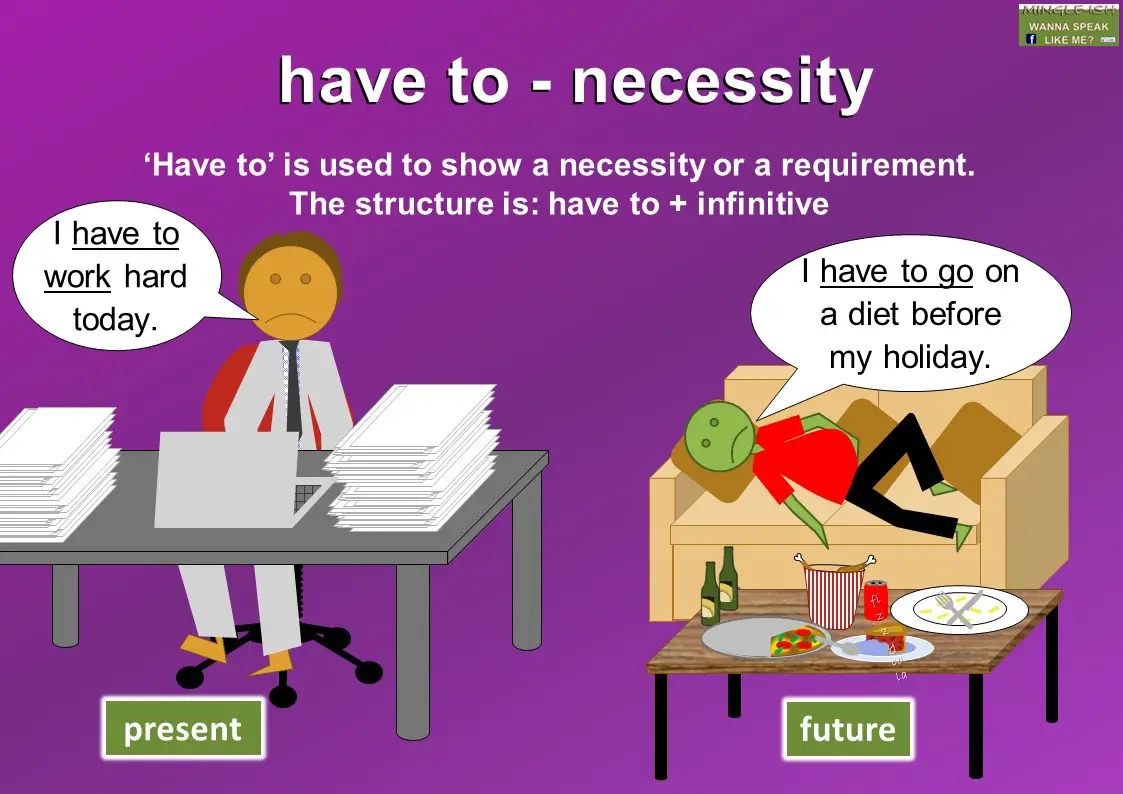



Modals Have To Must Need To Mingle Ish




Must Have To Need To Should Can Konu Anlatimi Ve Farki 0dan Egitim Platformu




Quelle Est La Difference Entre Must Mustn T Et Have To Don T Have To Hinative
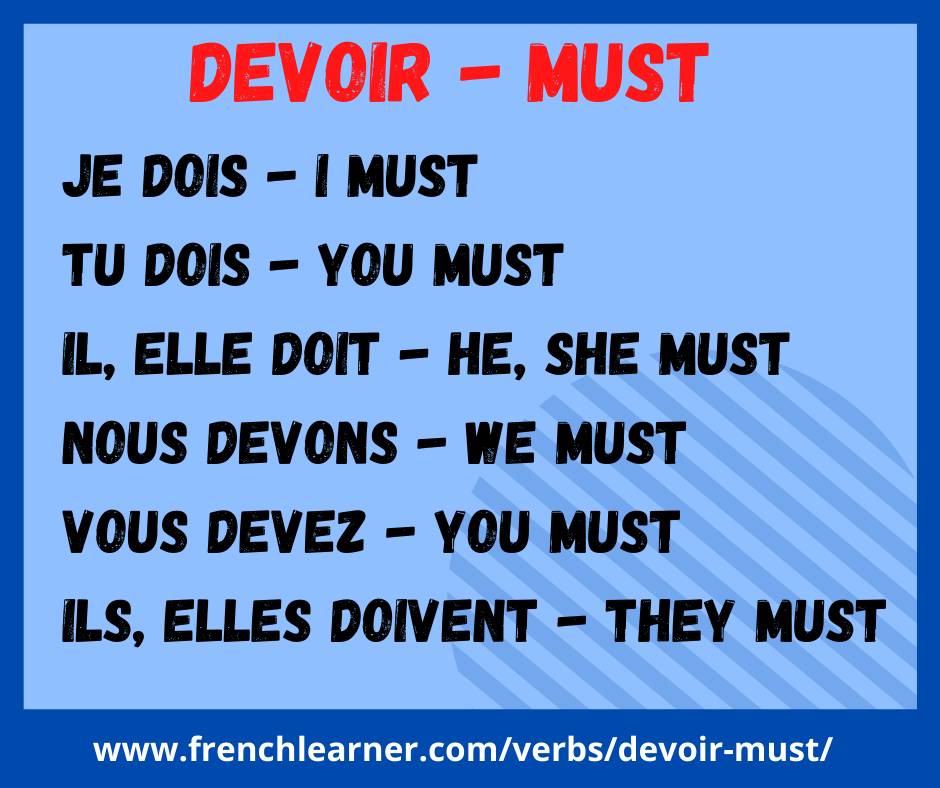



Devoir Conjugation



Www E Grammar Org Download Modal Verbs Can May Must Worksheet Pdf



Modals P 1 Must Have To Need To Be To Myenglishness




Modal Verbs Should Must
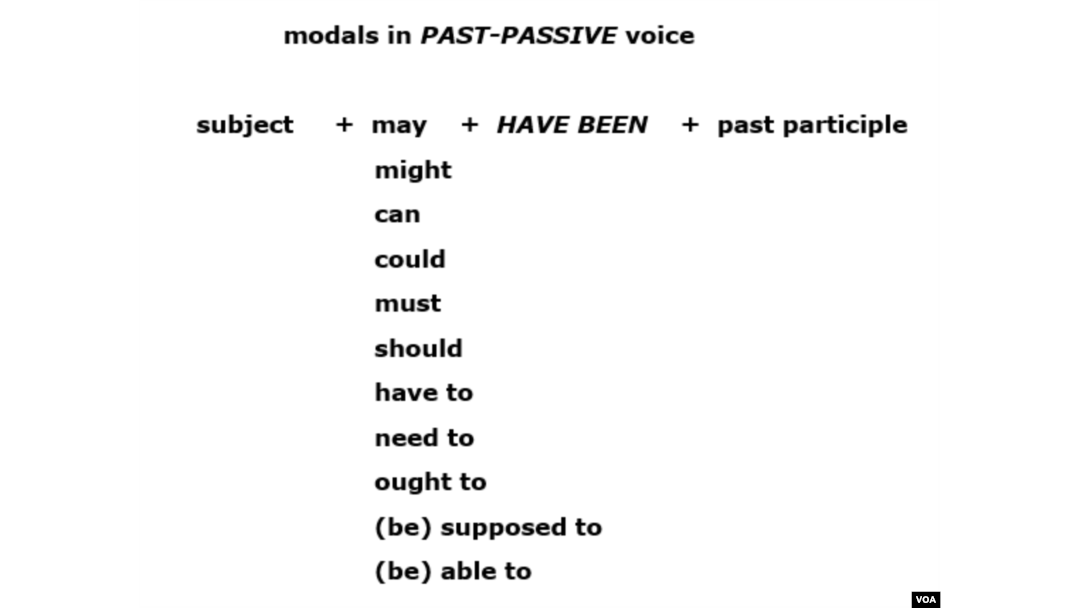



Learning Passive Modals It Can Be Done




Modal Verbs Should Must
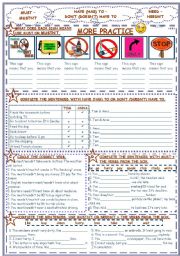



Must Mustn T Don T Doesn T Have To Esl Worksheet By Katiana




Must Or Have To Worksheets And Online Exercises




Modal Verbs 2 Must Vs Have To English 4 All
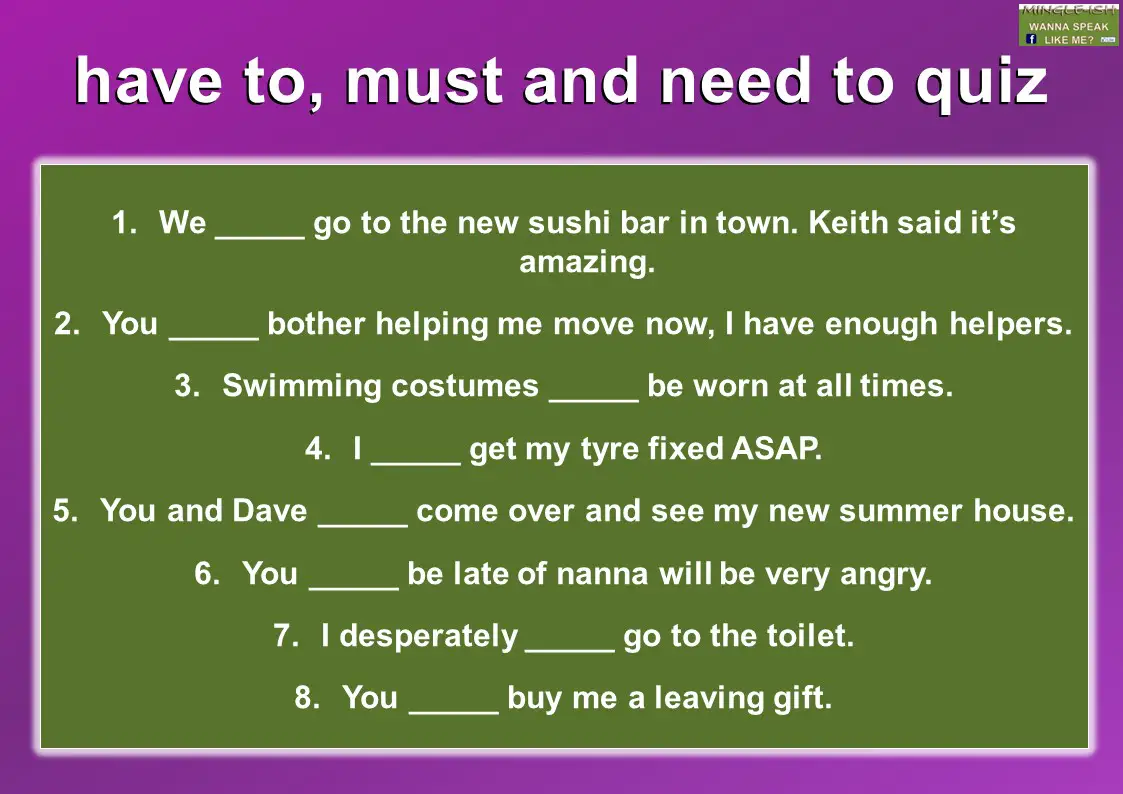



Modals Have To Must Need To Mingle Ish
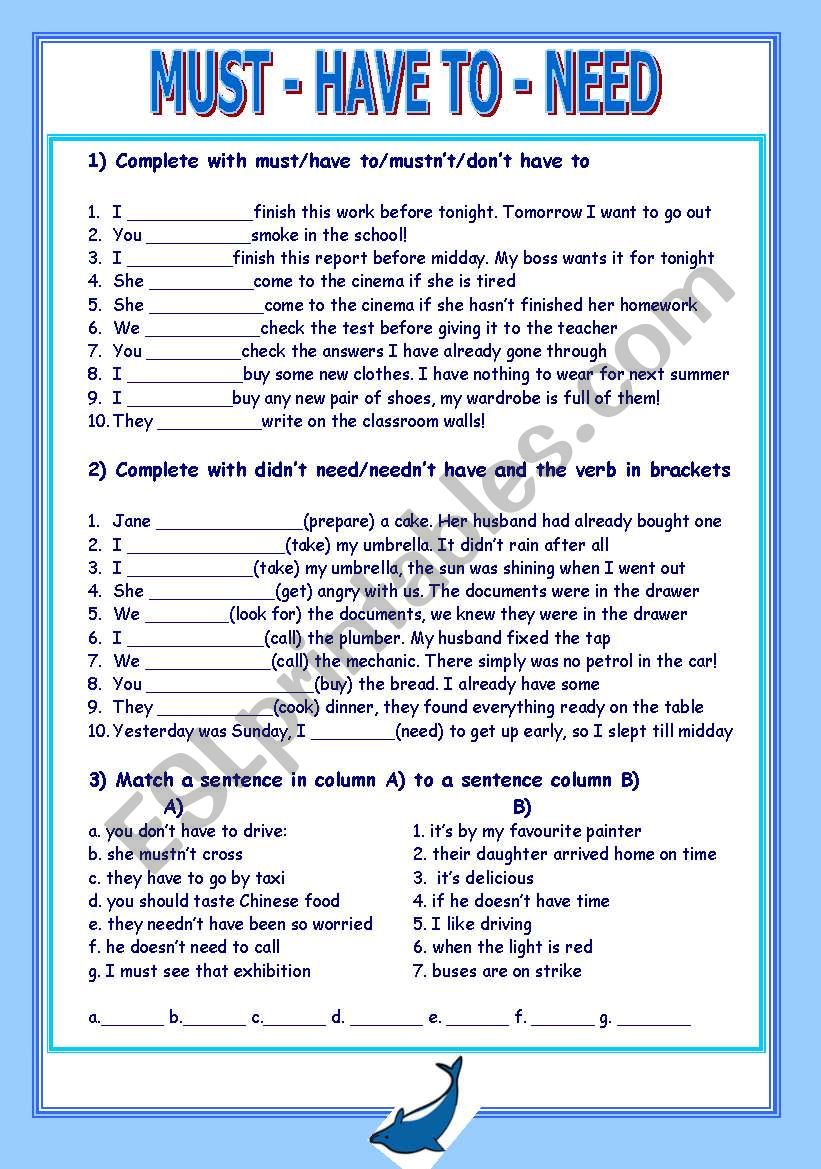



Must Have To Need Esl Worksheet By Afrodite




Must Vs Have To Build Up Your English Facebook




English Grammar Must And Have To Mustn T And Don T Have To Eslbuzz Learning English
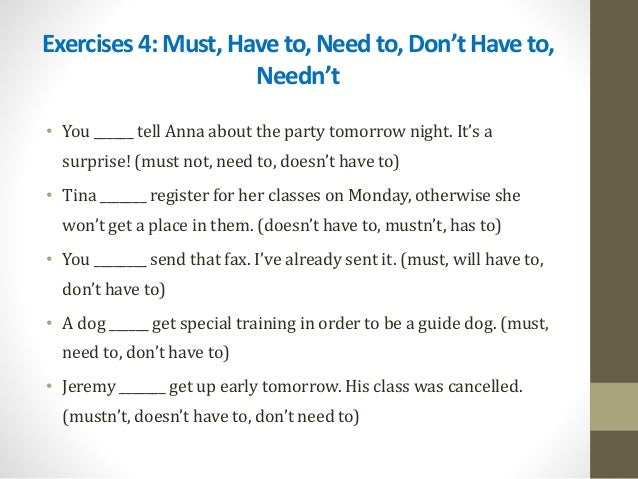



Modal Verbs Review All Of Them



1
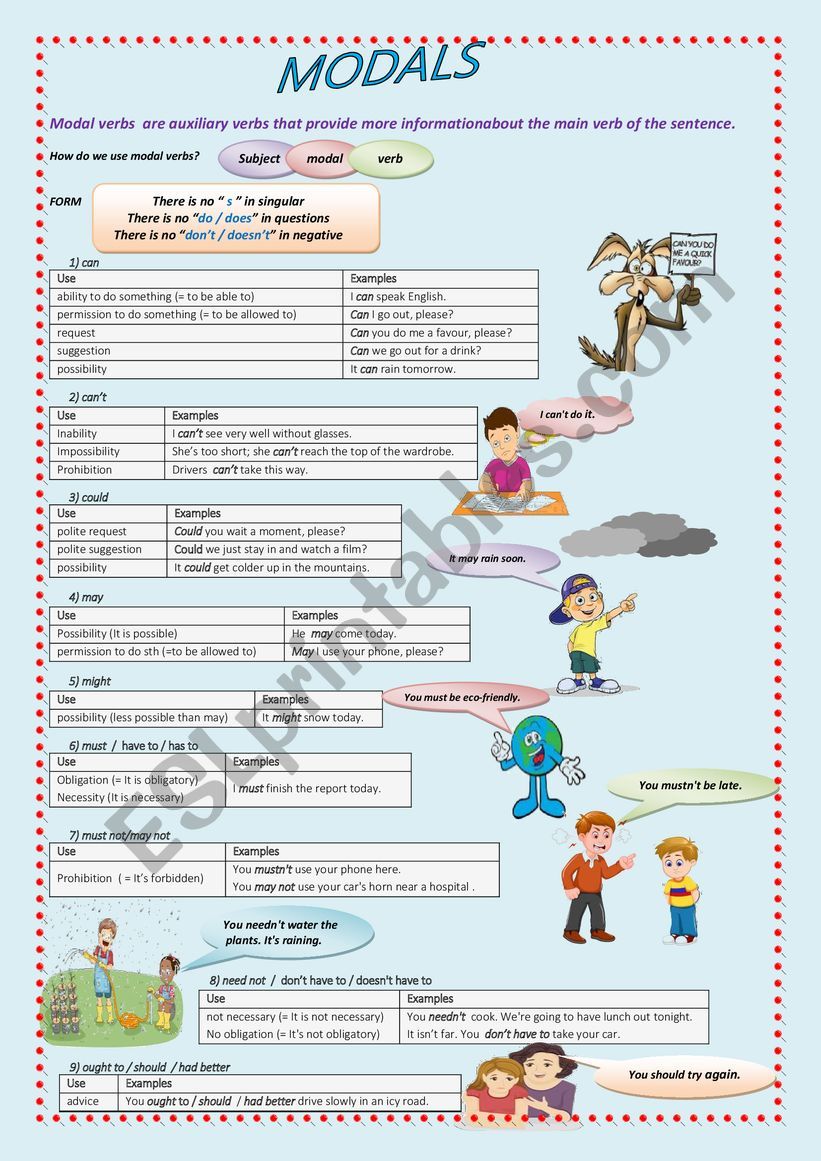



Modal Verbs Can Must Mustn T Needn T Esl Worksheet By Benyoness




Modal Auxiliaries Modal Auxiliaries Modals Dont Have An



Use Of Must May Can Could Have To Need To Has To Ea English




Modal Verbs Shall Should Need Must Ought To Will Would Bespeaking Blog




Test English Prepare For Your English Exam
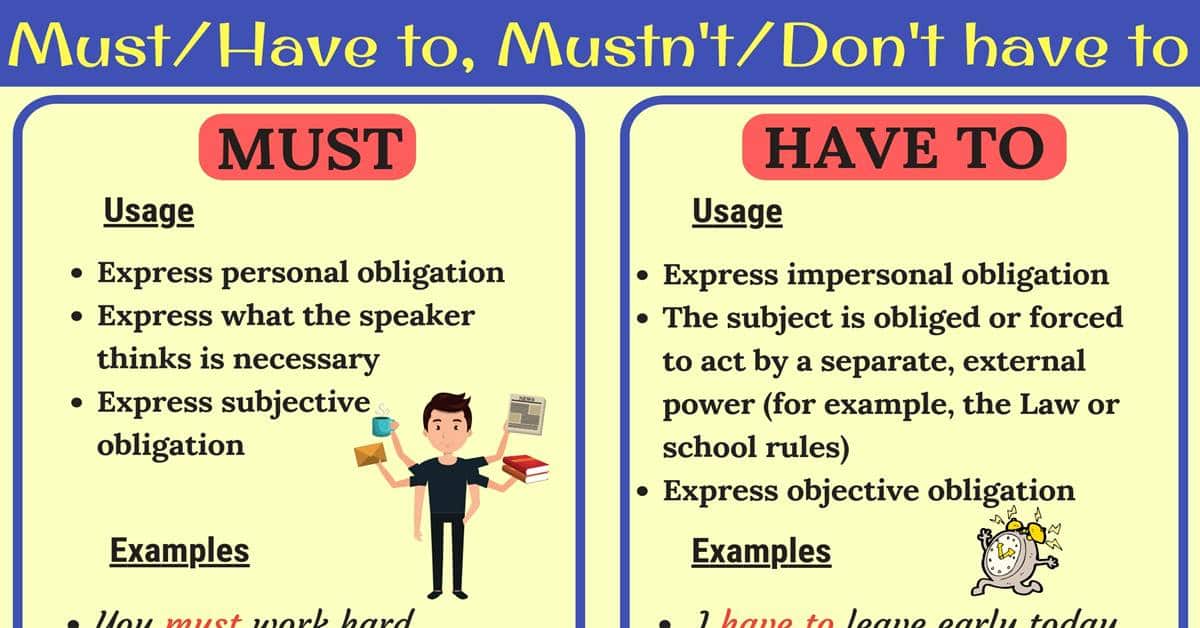



Must Vs Have To Must Not Vs Don T Have To 7esl




Must Vs Have To Eduka Planet



Obligation Necessity Permission Ppt Download
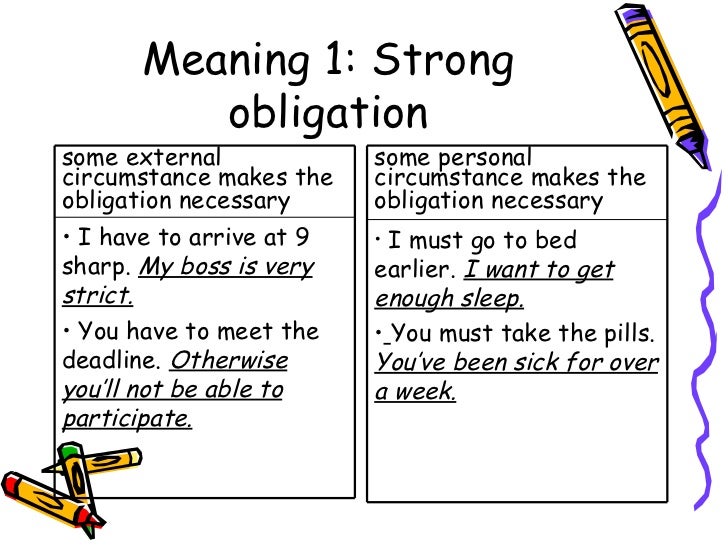



Have To Vs Must




Ppt M O D A L S Powerpoint Presentation Free Download Id




Pin On Aprender Idiomas




Modal Verbs Must Have To Should English Esl Worksheets For Distance Learning And Physical Classrooms




ثمرات اللغة Language Thamarat Have To Don T Need To Needn T Must Mustn T شرح قواعد 1 ثانوي Traveller 1 Grammar




Have To Must And Should For Obligation And Advice Learnenglish Teens British Council


